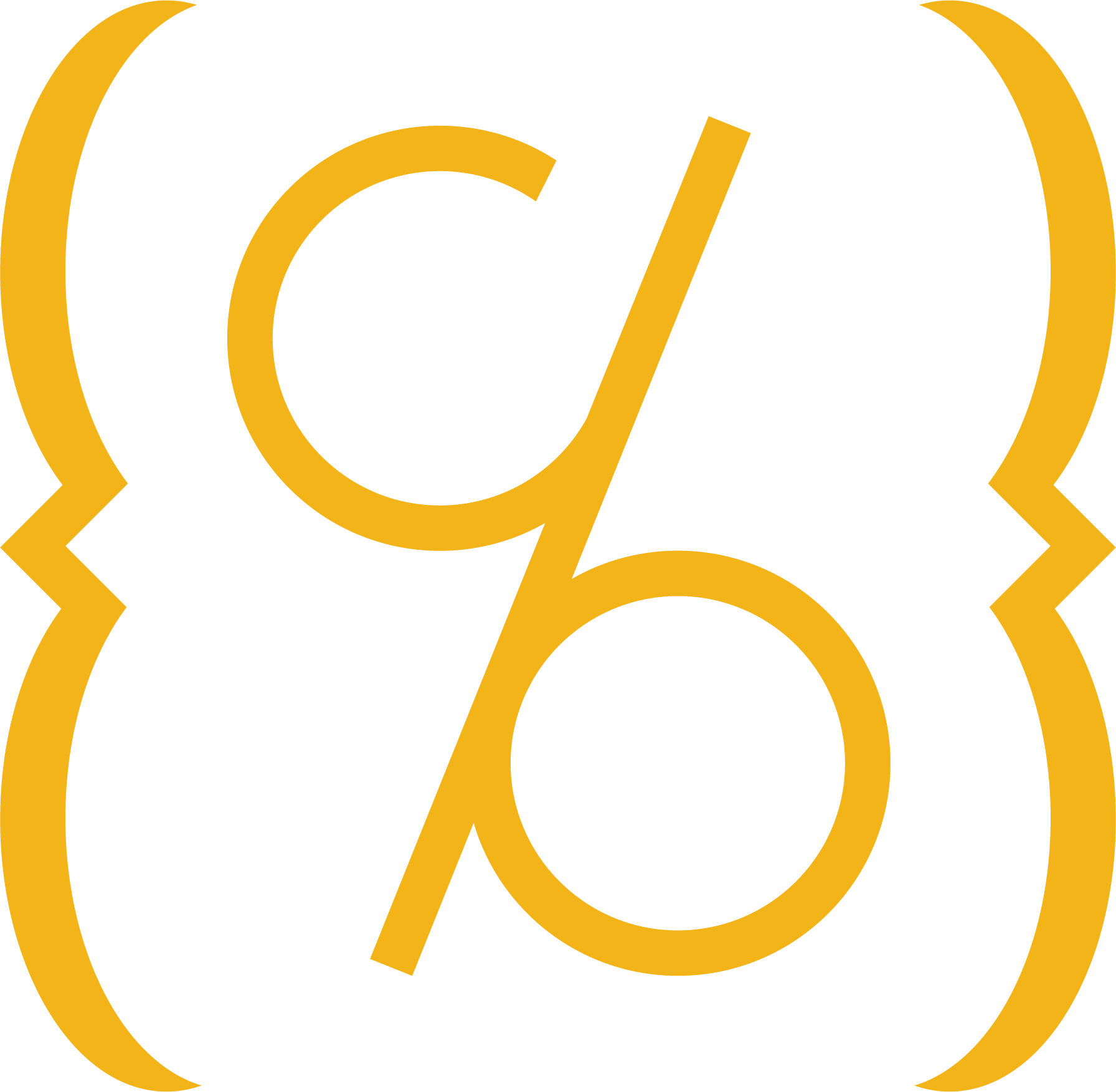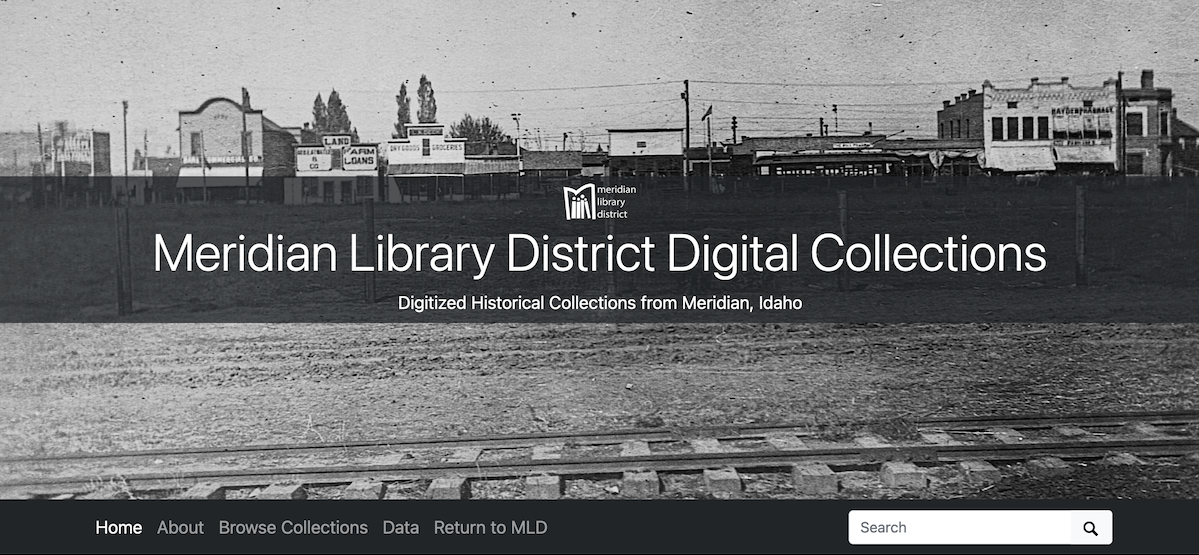Project Spotlight: Q&A with Bryan Cottle, Meridian Library District Digital Collections
By Julia Stone; Bryan Cottle | January 31, 2024As part of our CollectionBuilder Project Spotlight Q&A series, History Center Digitization Technician Bryan Cottle from the Meridian Library District shares how the Meridian Library District (MLD) History Center has used CollectionBuilder to publish digitized historical collections from Meridian, Idaho.
1. Can you describe your CollectionBuilder projects?
The MLD History Center focuses on the history of Meridian, Idaho. In 2021, care of the Meridian History Collection transferred to MLD from the former Meridian Historical Society. Every digital collection we have built with CollectionBuilder has come either out of the archival material inherited from the Meridian History Collection, or from partnerships with organizations in our community.
We currently have seven completed projects. One fascinating collection is the 1921 Willett Family Photo Album. It highlights a family’s six week journey from Massachusetts to visit their daughter in Meridian. The Willett family story is surprisingly unique in that Mr. Willett converted his Ford automobile into a very early version of an RV or “auto bungalow” in order to make the journey.
Other collections include:
- Dairy Days Collection: A look into the 1950 Dairy Days parade (an annual Meridian tradition since 1929)
- Girl Graduate Album: A scrapbook chronicling the senior year of Meridian High School graduate, Ardath Lillian Caldwell, in the early 1920s.
- Mayes Gray Collection: A 1922 scrapbook chronicling the year of a Meridian High School Senior, a collection of photos from two early Meridian settler families
- Meridian Occident Club Collection: A 70-year history of an all women’s club that engaged in civic charity and created the first public library in Meridian
- Meridian Police Department Collection: A history of the Meridian Police Department
- Pine Street School and Meridian Elementary Collection: A history of the historic Pine Street School
2. Why did you decide to use CollectionBuilder for your projects?
If I had to give one specific reason for deciding to use CollectionBuilder, it would be the simplicity of the website layout. Simplicity is a marvelous thing in this context. CollectionBuilder allows the user to create an engaging and eye catching digital collection website, with the added benefit of easy navigation. We were even able to customize the navigation menu to include links to return to browse all collections and return to our main website.
Not every individual who will interact with a collection will be computer savvy, but the ease of the searchability, the navigation menu, and the rotating sample images aid in presenting a very accessible website. CollectionBuilder is truly a fabulous way to help the Meridian Library District History Center preserve and share the history of Meridian, Idaho.
3. What were some of the benefits and/or successes of using CollectionBuilder?
There are several benefits to using CollectionBuilder. First, you don’t have to be an expert in coding and website development to use CollectionBuilder. The University of Idaho’s work on CollectionBuilder has made digital collection creation accessible to all public and private librarians. Of course, there will be a learning period for those new to digital collection website creation. However, the various tutorials and documents contained on the CollectionBuilder website, as well as the CollectionBuilder Discussion Forum, provide readily accessible help in the creation process.
Second, as mentioned earlier, the simplicity of the website layout allows those viewing the collection to do so with ease, while still presenting an eye-catching interactive website. Third, CollectionBuilder is free. For institutions using CollectionBuilder, any cost they may incur would come from their GitHub subscription (if not using the free version of GitHub) and their data-storage capacity needs. There are likely more benefits, but these are the ones that readily come to my mind.
4. What were some of the challenges you faced while using CollectionBuilder? How did you navigate these challenges?
There is only one challenge I could think of regarding my initial use of CollectionBuilder. While using CollectionBuilder, you might have files you wish to include in your collection that are too large for browser upload on Github (the max file size currently allowed is 500MB without performance impact). GitHub manages the file size of items in order to maintain a working performance. If you have file sizes that are too large for Github functionality, you can get around this by looking into Git Large File storage. If you don’t wish to do this, consider ways to reduce the data of your single file uploads.
For instance, if you have a PDF of a 300-page memoir and the file size is too large, try uploading the document in two or more parts, thus reducing the file size and allowing the same access to the content. I admit, this is more of a Github issue than a CollectionBuilder issue, but it is an issue that could arise as you use CollectionBuilder.
In the future, we hope to move our files from GitHub to our local servers to prevent file size limitations. This will also allow a more seamless browsing experience for our patrons to have larger documents in one whole versus three to four parts.
5. What advice do you have for others wanting to use CollectionBuilder for their digital collections and/or exhibits?
If you are new to digital collection creation, I suggest that you practice by creating a few projects with CollectionBuilder-GH. This is a great way to step into learning about digital collection creation. However, once you get the hang of it, I highly recommend switching to the CollectionBuilder-CSV template.
One of my first major projects included numerous PDF files along with JPEG files. While CollectionBuilder-GH was great in displaying the images, each PDF file had a generic PDF image attached to the display. CollectionBuilder-CSV allows for the creation and inclusion of both small images and thumbnail images. Your website will load faster with these additions, and your PDF files will show an image of the first page of the PDF, instead of a generic display image for every PDF link.
CollectionBuilder-CSV also allows you to develop website content on your local computer through Visual Studio Code and GitHub Desktop as opposed to being logged on to GitHub on an internet browser. The advantage of doing this on your local computer is that you can see how your working changes look prior to committing those changes to your website.
6. Do you have any future CollectionBuilder projects that you are planning to do? If so, please describe them.
We have a long list of future projects on our docket to accomplish, with three currently in progress.
The Meridian History Center is currently working with members of the Idaho Historical Racing Society to create a digital collection on the history of the Meridian Speedway. In 1951, the Meridian Speedway was built and it continues to hold car racing competitions to this day. The Speedway became a large gathering place for racers throughout the Pacific Northwest, and as Meridian grew in population the expansion of downtown Meridian grew around the stadium. This project will likely be one of our largest to date, as it will cover the Speedway’s history from its conception to the present.
Second, we are currently working with the Meridian Fire Department to create a collection on their history. This will be a very important and fitting collection that will complement our previous work on the Meridian Police Department. Finally, we are in the process of creating a digital collection on the history of the Meridian Library District. This year marks both the 50th anniversary of the creation of the Meridian Library District as well as the 100th anniversary of the first established library in Meridian.
These projects will hopefully be up and running in the next few months, with additional materials added to each collection in the future.
7. Anything else to add? Please feel free to share links to any resources, projects, repositories, etc.
For those interested in browsing the Meridian Library District’s digital collection pages please visit the Meridian Library District Digital Collections website. For those interested in donating any materials related to the history of Meridian, Idaho, please email us at history@mld.org, or leave us a voicemail at 208-888-4451, ext. 1023 and we will return your call.
The Meridian Library District looks forward to continuing to use CollectionBuilder to create many more digital history collections.
Want to share one of your CB projects? We welcome you to contribute! Please reach out to collectionbuilder.team@gmail.com to participate in a Q&A.
 CollectionBuilder
CollectionBuilder
